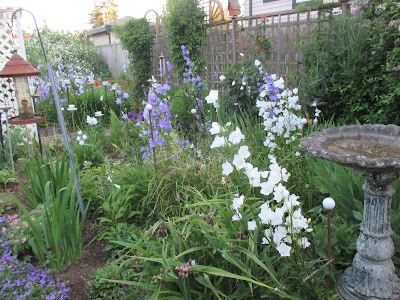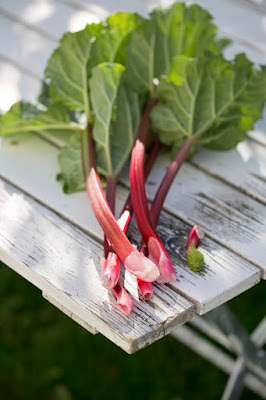Happy First Day of Summer!! Our sky was totally clear this morning and we're in for a real summery day. 30C if the forecast can be believed.
I found this information so interesting...
This year's vernal equinox occurred on March 19, at 11:06 p.m. EDT.
It was only the second time that the equinox had fallen on March 19 in
more than a century. In fact, it was the earliest spring equinox since 1896 — 128 years ago.
This
year's summer solstice is also the earliest we've seen in a long time.
However, we have to look back a lot further than 1896.
Even taking
into consideration that there was no daylight saving time back then,
2024's summer solstice is still earlier. We actually have to go all the
way back to 1796 — 228 years ago — to find an earlier summer solstice.
*****************************
My flowers are loving the sunshine and my Campanula persicifolia has never done better. I just call them my Bluebells but I have as many white ones as blue.
Work continues on the medical building that's going up behind us. Massive 3 story-high walls of concrete are being lifted into place by a crane. It's very interesting to watch although everything is done so slowly and great care taken. I wonder how much one of those walls weighs.
I'm taking a break from doing housework but I think I better get back to it now. AFTER I check on the construction progress.
Thanks for visiting
I'm adding this next bit for my own information.
1752 was when the calendar went through a major shift, skipping over
11 full days in September of 1752, to correct 17 centuries of celestial
drift and bring the equinoxes and solstices back into alignment with our
calendar.
Once
that was done, the Gregorian calendar then added in a correction to
leap years to prevent that problem from recurring. After 1752, every
year evenly divisible by 4 would be a leap year, except those years that are evenly divisible by 100, but not 400 (1800, 1900, 2100, 2200, 2300, etc.).

















































